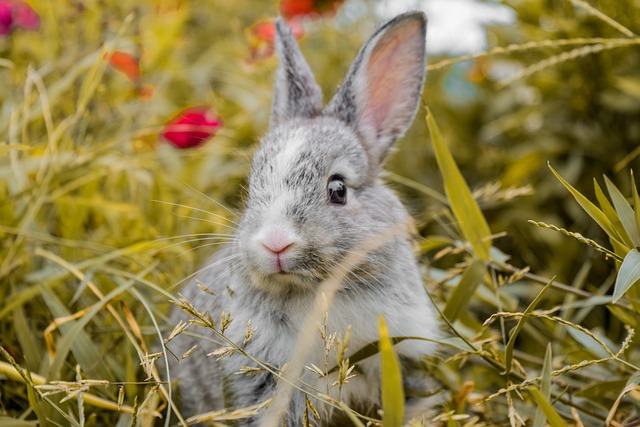Creating a Balanced Diet for Your Rabbit
As a rabbit owner, providing a balanced diet for your furry friend is crucial for maintaining their overall health and well-being. A proper diet can help prevent diseases, promote healthy growth, and even extend your rabbit’s lifespan. In this article, we will explore the essential components of a balanced rabbit diet, discuss common dietary mistakes to avoid, and provide practical tips on how to create a nutritious meal plan for your beloved pet.
The Nutritional Needs of Rabbits
Rabbits are herbivores and their nutritional needs are quite different from those of omnivores or carnivores. They require a diet rich in fiber, vitamins, and minerals to maintain optimal health. The key nutrients required by rabbits include:
* High-quality hay (80-90% of the diet)
* Fresh vegetables (5-10% of the diet)
* Limited amounts of fresh fruits
* High-protein pellets or mix specifically formulated for rabbits (5-10% of the diet)
* Access to clean water at all times
Key Components of a Balanced Rabbit Diet
1. **High-quality hay**: Hay should make up the bulk of your rabbit’s diet, providing fiber and essential nutrients like calcium and phosphorus. Choose high-quality timothy or alfalfa hay, avoiding hay with added sugars or preservatives.
2. **Fresh vegetables**: Offer a variety of fresh vegetables daily, including leafy greens like kale and spinach, bell peppers, cucumbers, and carrots. Limit the amount of starchy or high-sugar vegetables like potatoes and corn.
3. **Limited amounts of fresh fruits**: Fresh fruits should be given in moderation, as they are high in sugar and can cause digestive issues. Choose fruits like berries, apples, and melons.
4. **High-protein pellets or mix**: Use a high-quality rabbit pellet or mix as a supplement to your rabbit’s diet, providing essential nutrients like protein, vitamins, and minerals.
5. **Calcium supplements**: Rabbits need calcium for strong bones and teeth. Consider adding crushed eggshells or cuttlebone to their hay or food to provide extra calcium.
Common Dietary Mistakes to Avoid
* **Overfeeding**: Rabbits are prone to obesity, so monitor their food intake carefully and avoid overfeeding.
* **Under-feeding**: Make sure your rabbit has access to plenty of fresh water and hay at all times.
* **Giving too much sugar**: Limit or avoid sugary foods like candy, chocolate, and soda.
* **Not providing enough fiber**: Ensure your rabbit’s diet includes plenty of high-fiber foods like hay and vegetables.
Practical Tips for Creating a Balanced Meal Plan
1. **Rotate fresh vegetables daily**: Offer a new variety of fresh vegetables each day to ensure your rabbit receives a balanced mix of nutrients.
2. **Provide a constant supply of hay**: Ensure your rabbit always has access to high-quality hay, even if you’re not at home.
3. **Use a food scale or measuring cups**: Measure out your rabbit’s food portions carefully to avoid overfeeding or under-feeding.
4. **Avoid giving table scraps**: Refrain from feeding your rabbit human food, especially sugary or fatty foods.
Conclusion and Final Advice
Creating a balanced diet for your rabbit requires attention to detail and a commitment to providing the best possible nutrition. By following these key points and practical tips, you can help ensure your rabbit stays healthy, happy, and thriving. Remember to monitor your rabbit’s behavior, health, and weight regularly, making adjustments as needed to their meal plan.
Tags:
– Rabbit Nutrition
– Balanced Diet for Rabbits
– Healthy Eating Habits for Pets
